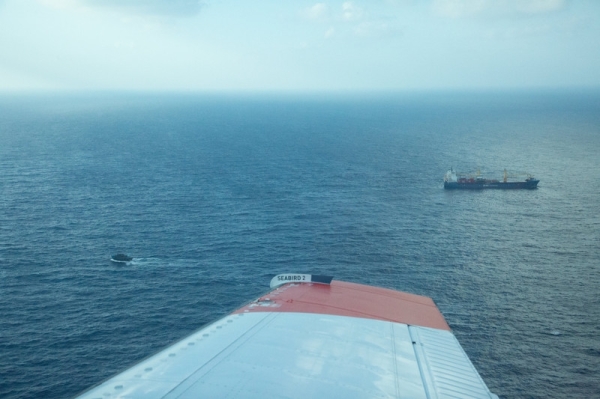EU-borders chief offers to help Canary Islands amid migrant spike
The EU’s border agency Frontex is ready to offer emergency support to Spain following a spike in migrants crossing from the West African coast to the Canary Islands.
Speaking at a hearing with the European Parliament’s justice and civil liberties committee on Monday (18 March), Frontex director Hans Leijtens told MEPs that he would soon travel to the Canary Islands due to the "very worrying" situation regarding immigration on the Islands.
In the first three months, the archipelago has received 12,393 immigrants compared to the 2,178 that were registered at this time in 2023.
Although Lejtens reported there has been a decrease in the flow of migration in the Central Mediterranean, numbers of irregular migrants have increased from West Africa through the Canary Islands.
"We are in close contact with the Spanish authorities to find out if they need our help. At the moment this help has been limited but we are at their disposal. But we need your request first," said Leijtens.
Frontex currently has around 200 officers and staff working on the Canary Islands and the Western Mediterranean routes.
In February, European Commission president Ursula von der Leyen and Spanish prime minister Pedro Sánchez launched a €210m migration management agreement with Mauritania, in an attempt to curb people-smuggling to the Canary Islands, with the EU offering investment in energy and infrastructure projects and security.
EU officials said that the rapid increase in migrants seeking to cross from Mauritania, plus its role in housing thousands of refugees from the Sahel region, which has seen a series of recent military coups and Islamic terrorism, has made it a priority country for the EU.
The EU executive has also beenin negotiations on a status agreement to govern Frontex’s operations in Mauritania and Senegal since 2022.
However, last September Leijtens told MEPs that he had "a lot of reluctance" about the prospect of launching joint operations with the two West African states.
The EU border agency currently provides training and support for several North African countries including Tunisia, Morocco, and the Libyan coastguard, despite controversy over Libya’s human-rights record.
Experts say that the West African route, for which Senegal is also a major embarkation point, is now the most active for people smugglers offering high-risk trips by boat to the EU.
Last year, the Western African route experienced the biggest percentage rise in irregular crossings.
Meanwhile, migrant arrivals by land to Ceuta and Melilla, Spanish enclaves which border mainland Morocco, have also increased by 232 percent in 2024 compared to the same period in 2023, said Leijtens.

